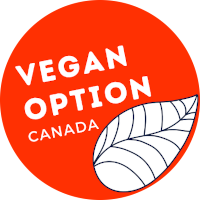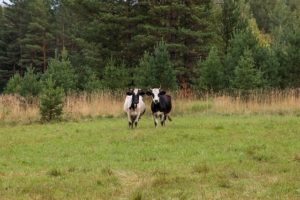By Carolyn Harris
Earlier this year, Vegan Option Canada invited Canadian vegans to participate in a survey about their experiences as vegans at schools, hospitals, workplaces, prisons, and other public institutions and services in Canada. Vegans were asked whether they have had reliable access to adequate vegan food options, whether they have faced any unfair treatment based on their veganism, and whether they have been expected to participate in any activities that are not in line with their vegan ethics.
The first vegan rights survey was conducted by Dr. Jeanette Rowley in the United Kingdom in 2014. More recently, Go Vegan Scotland conducted its own survey on this topic. Vegan Option Canada’s study was inspired by these previous initiatives.
Our survey’s findings confirm that public institutions often lack suitable vegan options. Even when vegan food is provided, it often is not enough to constitute a complete meal (for example, a number of the survey’s participants said that the only vegan option was a fruit cup, fries, or a plain garden salad). Especially while in the hospital, many vegans found that they were served non-vegan items even after requesting vegan food. Doctors, teachers, and employers often do not have a solid understanding of what veganism is. Many vegans said that they have been teased, excluded from social events, or otherwise treated unfairly in their workplaces because they are vegan. Many others have been expected to participate in activities (such as dissections at school, or wearing leather gloves and boots at work) that go against their vegan ethics.
Meanwhile, many vegans are not sure if they can access (or how to access) medications that are free from animal-derived ingredients. As well, vegans are unable to access pharmaceutical medications that have not been tested on animals.
It is necessary that governments and public institutions implement policies that protect vegans’ right live without exploiting non-human animals. Some required actions are summarized below.
- There is an urgent need for legislation that requires all public institutions in Canada to have clearly-labelled, nutritionally-adequate, good-quality vegan options on their menus.
- Public sector staff—especially teachers, health care practitioners, employers, and others who might be working with vegans—must be educated about veganism and what vegans do and don’t eat, wear, and use.
- Rather than teaching students to exploit animals, schools must implement a curriculum that does not exclude vegan students. Likewise, they must educate students on what veganism is so that students know that it is possible to live without exploiting non-human animals.
- All health care practitioners must receive education on vegan nutrition, including the use of a plant-based diet to help prevent disease. Health care practitioners also need to be educated on animal-free alternatives to common animal-derived medications—for example, sending the prescription to a compounding pharmacy to be made with vegan capsules.
- Governments must fund research into developing animal-free methods of testing pharmaceutical medications, and they must remove the requirement that all medications be tested on non-human animals in the development process.
Please click here to view the survey report that outlines these issues in more detail. A three-page summary gives an overview of the survey’s findings, provides background information, and makes recommendations. This is followed by forty-three pages of in-depth analysis that includes many of the comments that were submitted by the vegans who took the survey.
I would like to invite all members and supporters of Vegan Option Canada to share this report with your local political representatives, schools, hospitals, employers, and the media. With your help, we can make a difference.
Thank you to everyone who has taken the time to complete the survey—your input is much appreciated!



